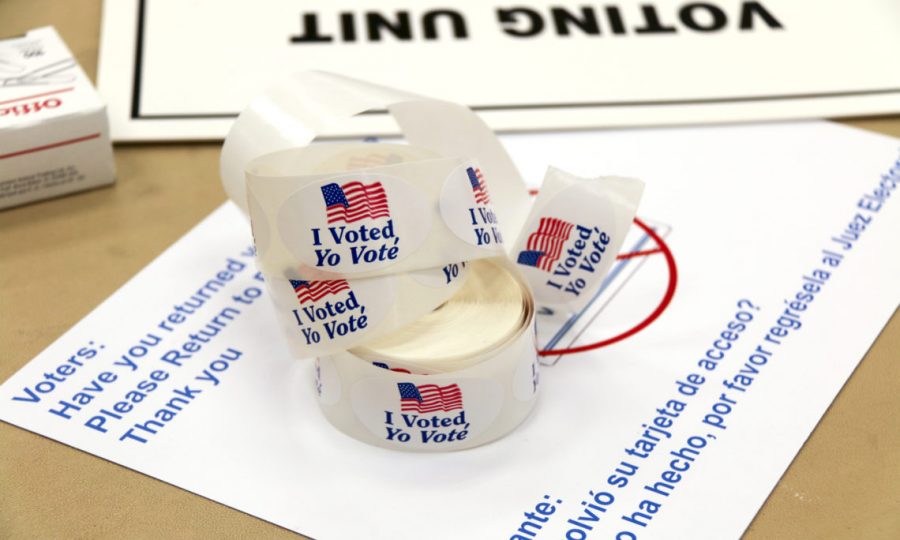Since the November 2020 election, all eyes have been on the state of Georgia. But last Tuesday, Jan. 5, Georgians made their voice heard and sent two Democrats to the U.S Senate – thus giving control of the U.S Senate to the Democratic Party.
This year, unlike every other state, Georgia had two U.S Senate elections.
The first was a regular election between Republican incumbent Senator David Perdue and Democrat Jon Ossoff, who had previously run for a House of Representatives seat in 2017.
The second was a special Senate election to finish the term of Republican Senator Johnny Isakson, who had retired in December 2019. Business woman Kelly Loeffler, a Republican, was appointed to the seat in February 2020 by Republican Governor of Georgia Brian Kemp. But to finish the rest of the term, Loeffler had to win a special election, where she faced Reverend Raphael Warnock, a Democrat.
Since 2015, Republicans have held a majority in the United States Senate. Since then, the Democrats have worked towards winning the majority back.
Senate seats are split into three classes, meaning usually only a third of the senate is facing elections each election year. The 2020 election senate map was favorable for the Democrats, but on election night, the Democrats underperformed and Senate elections they wanted to win were lost.
Unlike most other states, Georgia requires a run-off election for state and congressional offices if no candidate wins 50% of the vote in a general election, and since neither Perdue, Ossoff, Loeffler, or Warnock accomplished that, both races advanced to a run-off that was held on Jan. 5, 2021.
Though Republicans already held 50 seats after the 2020 election, the two Georgia seats presented an unusual situation. If the Democrats picked up the two seats, the Senate would have a 50-50 tie, meaning the President of the Senate – the Vice President of the United States – would break all ties. So, starting on Jan. 20 when her term as Vice President begins, Vice President-elect Kamala Harris would break ties – giving the Democrats the Senate majority.
Then suddenly, as the 2020 election drew to a close, the entire country shifted their focus to Georgia.
In most years, the chances for the Democrats to win in Georgia would have been laughed at. Georgia has long been a safe state for the Republicans. To add to that, runoff elections in Georgia have favored Republicans in the past. A nonpartisan study of the history of runoffs in Georgia found that, going back to 1988, Democrats have won one of seven statewide runoff elections.
But the tides were changing. Thanks largely to the efforts of Stacey Abrams and many other organizers in Georgia, African-American voters who traditionally have had their vote suppressed, as well as various other voters who had long not voted, registered to vote and turned out to the polls. President-elect Joe Biden’s win also amped up the hopes of a Democratic win in Georgia, with many both believing a Democratic Senate run off win to be possible, and becoming motivated to provide Biden the chance to enact the agenda they elected him for.
So just like that, the two month campaign season started. Both parties were determined to win – and invested heavily into advertising and get-out-to-vote efforts. The campaign period also saw campaign visits from many popular players in each party – such as President Donald Trump, Biden, Vice President Mike Pence and Harris.
Throughout the campaign, the Republican candidates were expected to win because of incumbency advantage and the fact that though Georgia did vote for Biden, the election was very close (Biden won by only a little over 11,000 votes) and Georgia is still traditionally Republican.
But the Democratic base came out in full force. With high Democratic turnout in the early vote and vote by mail, Republicans needed a heavy turnout on election day in order to win. But they didn’t get that. Many Democratic and Republican analysts have blamed this lack of turnout from Republicans on Trump himself, as ever since his defeat, he has accused the swing-states he lost, including Georgia, of having massive voter fraud issues.
“Trump’s comments are damaging the Republican brand,” argued Republican donor Dan Eberhart, several days before the runoff. Eberhart added that the president is “acting in bad sportsmanship and bad faith” instead of emphasizing Republicans’ need to maintain Senate control.
This lack of Republican turnout on election day did lead to what the Republicans feared – two Democratic victories.
The Associated Press (AP) called the race for Warnock hours after voting ended, at around 11 p.m.
The AP called the race for Ossoff the next day, Wednesday, Jan. 6, at around 1 p.m.
In a video declaring victory, Warnock recalled his upbringing as one of 12 children of a woman who worked in cotton fields.
“Because this is America, the 82-year-old hands that used to pick somebody else’s cotton went to the polls and picked her youngest son to be a United States senator,” Warnock said.
In a video declaring victory, Ossoff said he looked forward “to serving you in the United States Senate with integrity, with humility, with honor”.
“It turns out that telling the voters that the election is rigged is not a great way to turn out your voters,” said Senator Mitt Romney, one of Trump’s few Republican critics in Congress.
These two wins deliver the Democrats the Senate majority – which will greatly help President-elect Biden implement his ambitious agenda – that ranges from the economy, to healthcare, to climate change, to racial justice, and much more – once sworn in. On Jan. 20, the Democrats will control the government “trifecta,” the White House, the House of Representatives, and the Senate – so while whipping votes will still have to be done, the task of passing legislation becomes much easier for the Democrats (especially since current Republican Senate majority leader Mitch McConnell has long called himself the “grim reaper,” in regards to “killing” Democratic legislation).
“Georgia’s voters delivered a resounding message yesterday: they want action on the crises we face and they want it right now,” Biden said in a statement.
The current Senate minority leader, and presumptive incoming Senate majority leader, Democratic Senator Chuck Schumer has promised “bold change” that begins with COVID-19 pandemic relief.
“We didn’t take the most direct path to be here,” Schumer said on Wednesday. “But we are now here. It feels like a brand-new day. For the first time in six years, Democrats will operate a majority in the United States Senate. And that will be very good for the American people.”
The election results in Georgia are expected to be certified by Kemp and Georgia Secretary of State Brad Raffensperger in the coming days, after which Senators-elect Ossoff and Warnock will be sworn in as United States Senators.






